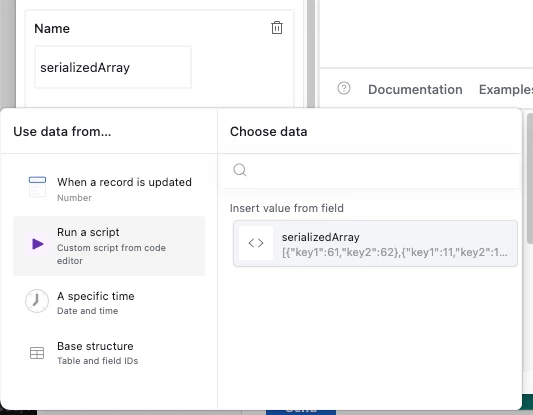I have an object that I output from another script using the Output.Set(key: value) method. The value that I’m passing is an array of json objects. It seems that there are a lot of objects to transform the object but I would prefer to just pass the object to my script to iterate over the object and use dot notation to get the values that I would like.
I don’t see anything that just lets me keep the object as is and pass it through input.config only transforms or operations like length? Is there no way to pass an array or object??




